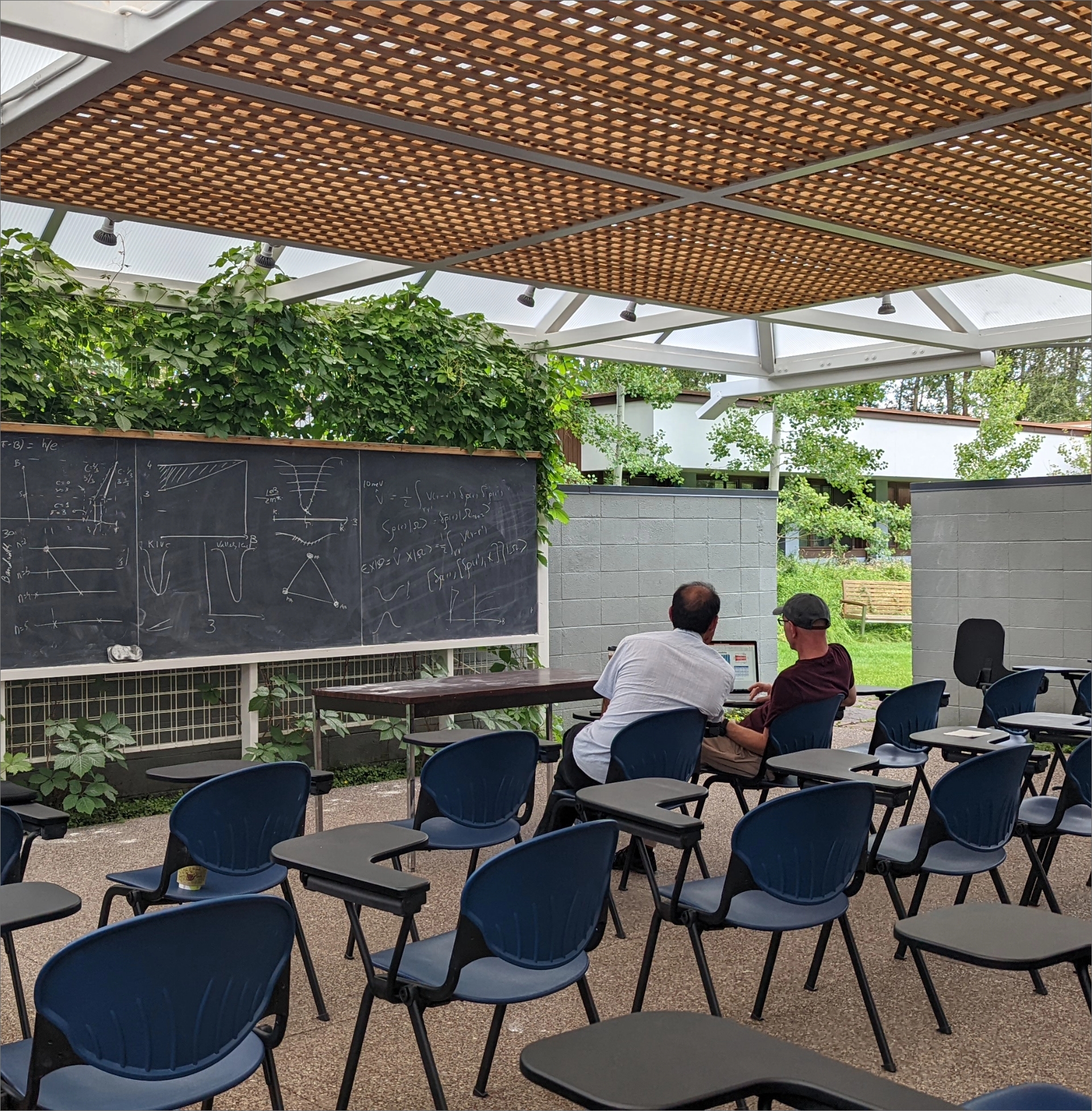
Summer Program
Toward a Holistic Understanding of the Multi-scale, Multiphase Circumgalactic Medium
August 25–September 15, 2024
Organizers:
Hsiao-Wen Chen, University of Chicago
Claude-Andre Faucher-Giguere, Northwestern University
S. Peng Oh, University of California Santa Barbara
Gwen Rudie, Carnegie Observatories
The CGM is host to a multitude of physical processes critical to the formation and evolution of galaxies. On large scales, these include inflows from the cosmic web (~Mpc) that fuel star formation and outflows produced by galactic feedback. On small scales, multiphase gas gives rise to a spectrum of cold gas structures going down to sub-pc scales. However, the mutual interplay between small-scale structure and large-scale dynamics remains a key open question. A major challenge is that the enormous range of physical scales and physical processes involved means that this problem cannot be solved by brute-force computation. Instead, we must combine insights from different approaches, including cosmological simulations, well-resolved idealized simulations (such as how cold clouds exchange mass, momentum, and energy with a hot phase), analytic modeling, and multi-wavelength observations. This workshop will bring together theorists and observers with different perspectives to exchange ideas, stimulate innovative projects through extended discussions, and seed new collaborations to advance the field. Key themes will include the physics of multiphase gas, connecting small scales and large scales, and how existing and new observations can constrain CGM physics.
Summer Workshops
The summer program, running for 16 weeks from late-May to mid-September, emphasizes exciting open problems at the cutting edge. Two or three concurrent workshops, each with a specific focus selected for timeliness and the potential for breakthroughs and of two to five weeks in length, establish the main themes of each week, with twelve or thirteen different workshops each summer, balanced across fields including particle physics, string theory, astrophysics and hard and soft condensed matter physics, as well as emerging areas including biological physics, ultra-cold atom physics, quantum information, and physical mathematics. Additional researchers participate in small working groups or as individual researchers. This framework is designed to maximize informal interactions and free discussion within each area and to promote cross-fertilization between different areas via the common language of theoretical physics. Participation in the summer program of the Aspen Center for Physics is by application and subsequent invitation only. View past workshops.
